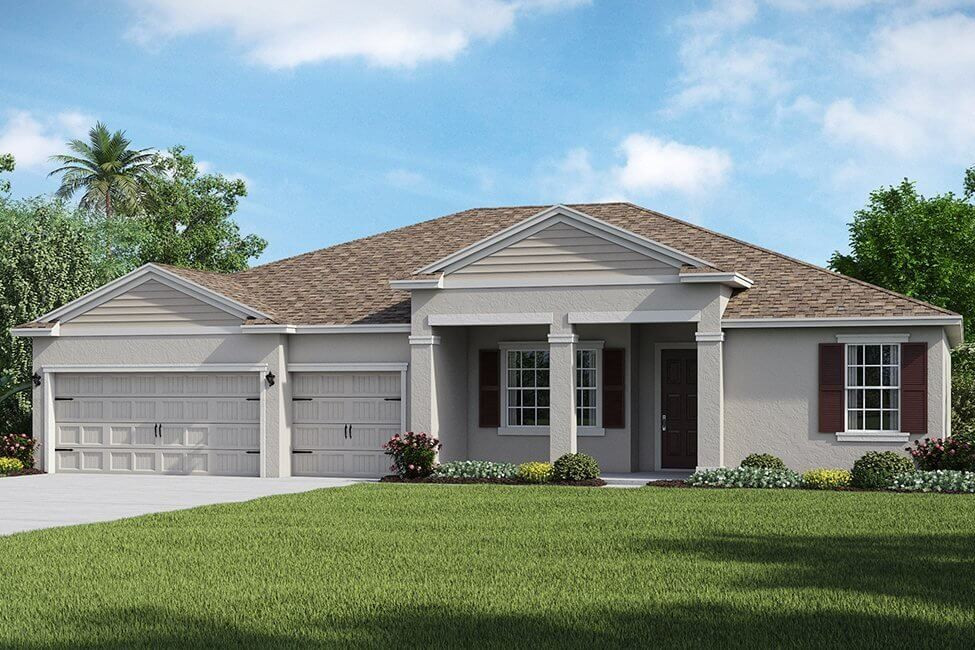
Why won't there be a flood of foreclosures coming to a head? real estate market
With the rapid change that has taken place in the real estate market this year, some people are raising concerns that we are destined for a repeat the crash we saw in 2008.
But in fact, there are many important differences between what is happening today and the bubble of the early 2000s.
One of the reasons why it's not like last time is that the number of foreclosures on the market is much lower now.
We analyze the reasons why there won't be a wave of foreclosures flooding the market.
Few borrowers are having problems this time
After the last real estate collapse, more than nine million of families lost their homes due to foreclosure, short sale or because they returned it to the bank.
This was largely because of relaxed lending standards, where people could take out mortgages that they ultimately couldn't afford.
These lending practices led to a wave of distressed properties making their way onto the market and causing home values to plummet.
But today, revised lending standards have led to more qualified buyers. As a result, fewer homeowners are behind on their mortgages. As Marina Walsh, vice president of industry analysis at Mortgage Bankers Association (MBA):
"second quarter in a row, the mortgage delinquency rate fell to the lowest level since the MBA survey began in 1979 - falling to 3.45%. Foreclosure starts and loans in the process of foreclosure also fell in the third quarter to levels even lower than their historical averages".
There have been fewer foreclosures in the last two years
While you may have seen recent stories about the number of foreclosures rising today, context is important.
During the pandemic, many homeowners were able to pause their mortgage payments using the tolerance program. The program gave homeowners facing difficulties more time to get their finances in order and, in many cases, work out a plan with the lender.
With this program, many were worried that it would result in a wave of foreclosures hitting the market.
That fear didn't materialize. Data of New York Fed show that there are even fewer foreclosures happening today than before the pandemic (see the graph below):
Home repossessions for non-payment have increased, but remain very close to the historic low

[ipt_fsqm_form id="8″]
This means that although there are more foreclosures now compared to last year (when foreclosures were paused), the figure is still well below what the real estate market saw in a more typical year, such as 2017-2019.
And most importantly, the number we're seeing now is still far below the number we saw during the market crash (shown in the red bars of the graph).
The big learning? Don't let a newspaper headline fool you. Although foreclosures increase year after year, historical context is essential to understand the full picture.
Most homeowners have more than enough equity to sell their homes
Many owners today have enough assets to selling their homes instead of facing foreclosure.
Due to the rapid increase in house prices over the last two years, the average homeowner has gained record amounts of equity in their home. And if they stay in their homes even longer, they can have even more more assets than you might think. As Ksenia Potapov, Economist at First American, says:
"Homeowners have very high levels of usable real estate today, providing a cushion to withstand possible price drops, but also preventing the housing problem from turning into a foreclosure. . . the result is likely to be more of a foreclosure 'trickle' than a 'tsunami'."
A recent report by ATTOM Data explains going even deeper into the numbers:
"Only about 214,800 homeowners faced possible foreclosure in the second quarter of 2022, or just four-tenths of one percent of the 58.2 million outstanding mortgages in the US . or 91 percent, had at least some equity accumulated in their homes.
Any doubts?
Now that we've explained to you that all the signs show that we're not in a real estate bubble, you can consider investing in vacation homes in Orlando. To make the most of all the tips we've given you and go even deeper, you can talk directly to our relationship agents. They are always happy to talk to you to answer any questions you may have about investing in Florida.
In this article, we've covered the topic of the behavior of the real estate market during recessions because it's interesting for those looking to invest in Florida. If you would like to read more content like the one in this article, just stay tuned to our blog.
Did you like the article? Keep an eye on our blog! Looking to live or invest in real estate in Florida? Check out the list of houses for sale in Florida that we've selected for you!
|
Getting your Trinity Audio player ready...
|
Leo Martins
My role is to create an environment for people to connect with Real Estate in Florida
Related Posts
September 25, 2025
An updated overview of renting in Orlando in 2025
Construction cranes aren't the only things going up amid Orlando's boom. This...



